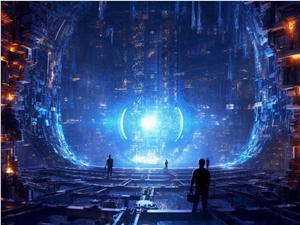Netflix is expanding its artificial intelligence initiatives in the gaming sector. Mike Verdu, who has led the company's gaming division for three years, is set to become the Vice President of Game-Generating AI, demonstrating Netflix's ambitious commitment to the gaming industry.
Verdu shared his vision for the new role on LinkedIn. He emphasized a "creator-first" philosophy, positioning AI as a catalyst and booster for game development. In his view, generative AI will bring groundbreaking transformational opportunities to game development and player experiences.

Regarding recent market speculations about Netflix shutting down game studios, Verdu refuted these claims as "unfounded media conjectures." Under his leadership, Netflix's platform now hosts over 100 games, with significant increases in player engagement. The company is currently testing cloud gaming services for TVs and PCs in multiple countries.
Although generative AI technology in game development is still in its infancy, it has already shown great potential. This technology is favored by the gaming industry because it can be applied to various aspects including code generation, graphic creation, text writing, audio processing, and the production of 2D and 3D assets. Recent surveys show that industry leaders are generally open to applying AI in development.
Currently, fully AI-generated games are still in their early stages, but several breakthrough projects exist. Google Research and Deepmind's GameNGen system can simulate the game DOOM in real-time; the AI research model DIAMOND can render Counter-Strike at 10 frames per second; the AI startup Decart and Etched's "Oasis" is a fully AI-generated game similar to Minecraft, capable of 20 frames per second; Tencent, in collaboration with multiple Chinese universities, developed the GameGen-O model, focusing on open-world game simulations.
However, these systems still face technical challenges: GameNGen's "memory" lasts only 3 seconds, DIAMOND and Oasis have issues with image clarity and consistency, and GameGen-O can only generate prototypes and has not yet produced a fully playable game.
In this context, Netflix's appointment of a dedicated gaming AI executive indicates the company's proactive stance in this promising field, potentially leading to significant advancements in game development and user experiences.









